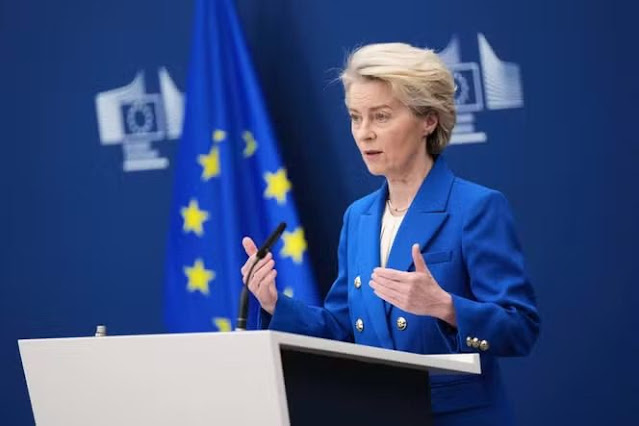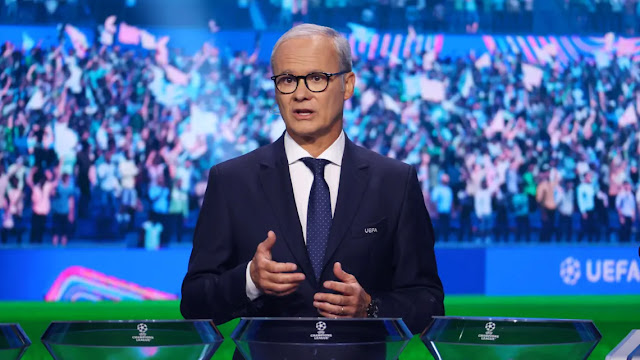On the night of August 27, 2025, a devastating Russian airstrike rocked Kyiv, Ukraine’s capital, claiming at least 15 lives, including four children, and injuring approximately 50 others. The assault, which involved an unprecedented barrage of 629 drones, missiles, and cruise missiles, also damaged the European Union’s diplomatic mission in the city, though no EU staff were harmed. In response, European Commission President Ursula von der Leyen held urgent calls with Ukrainian President Volodymyr Zelensky and U.S. President Donald Trump on August 28, emphasizing the need for Russia to return to the negotiating table to achieve a just and lasting peace backed by robust security guarantees. Von der Leyen reaffirmed Europe’s commitment, stating, “Europe will fully play its part.” This article provides a comprehensive analysis of the airstrikes, the diplomatic responses, the broader context of the Russia-Ukraine conflict, and the implications for Ukraine’s security, European solidarity, and global geopolitics.
The Airstrikes: A Tragic Escalation in Kyiv
The overnight assault on Kyiv, commencing late on August 27, 2025, was one of the deadliest in recent months, marking a significant escalation in Russia’s ongoing war against Ukraine, now in its fourth year since the full-scale invasion began in February 2022. According to the Ukrainian Air Force, Russia deployed an extraordinary 629 drones, missiles, and cruise missiles, showcasing a sophisticated and destructive arsenal aimed at overwhelming Ukraine’s air defenses. The attack targeted civilian and diplomatic infrastructure, including the European Union’s delegation building in Kyiv’s diplomatic quarter, a symbol of Ukraine’s deepening ties with the West.
The human toll was devastating. Ukrainian authorities confirmed at least 15 fatalities, including four children, with around 50 others injured. The strikes caused widespread destruction, collapsing buildings, shattering windows, and disrupting power and water supplies in parts of the capital. Eyewitnesses described scenes of chaos, with air raid sirens echoing through the night and residents seeking refuge in metro stations and bomb shelters. Emergency services worked tirelessly to rescue survivors and clear debris, while hospitals struggled to accommodate the influx of injured.
The damage to the EU delegation building was particularly significant, given its role as a hub for coordinating EU aid, policy dialogue, and support for Ukraine’s EU membership aspirations. While no EU staff were injured, the attack on a diplomatic site raised alarm about Russia’s disregard for international norms, specifically the Vienna Convention, which guarantees the inviolability of diplomatic premises. The Ukrainian Air Force’s report of 629 projectiles underscores the intensity of the assault, with the inclusion of advanced weaponry like cruise missiles suggesting a deliberate effort to maximize destruction and terror.
Diplomatic Response: Urgent Calls for Peace and Solidarity
European Commission President Ursula von der Leyen responded swiftly to the airstrikes, holding urgent phone calls with Ukrainian President Volodymyr Zelensky and U.S. President Donald Trump on August 28. In her discussions, von der Leyen condemned the attack as a brutal escalation and stressed the need for Russia to return to the negotiating table. “This horrific assault on Kyiv, claiming innocent lives, including children, shows the urgent need for a just and lasting peace,” she said in a statement. “Such a peace must be backed by strong security guarantees to protect Ukraine’s sovereignty and territorial integrity. Europe will fully play its part.”
Von der Leyen’s call with Zelensky focused on immediate support for Ukraine, including additional military aid, humanitarian assistance, and reconstruction efforts. She reiterated the EU’s unwavering commitment to Ukraine, which has received over €100 billion in financial, military, and humanitarian aid since 2022. The attack on the EU delegation building was a focal point, with von der Leyen expressing solidarity and promising to repair the damage while enhancing security for EU personnel in Kyiv.
The call with President Trump, whose administration has taken a more restrained approach to U.S. involvement in Ukraine since his inauguration in January 2025, aimed to coordinate a transatlantic response. While details of the conversation were not disclosed, von der Leyen likely sought to align U.S. and EU strategies to pressure Russia and support Ukraine’s defense. Trump’s stance on the conflict has been controversial, with his administration advocating for negotiations to end the war, a position that has raised concerns among Ukrainian and European leaders about potential concessions to Russia.
Ukrainian President Zelensky, addressing the nation on August 28, described the airstrikes as a “deliberate act of terror” and called for increased Western support, particularly in the form of advanced air defense systems and long-range weapons. “The blood of our children is on Russia’s hands,” he said, urging the international community to hold Moscow accountable. Zelensky also thanked von der Leyen for her solidarity, emphasizing that the attack on the EU delegation building was an assault on Ukraine’s European aspirations.
Context: The Russia-Ukraine War and European Integration
The airstrikes come as Ukraine continues its grueling resistance to Russia’s invasion, which has devastated the country, displaced over 8 million people, and caused tens of thousands of deaths. Russia’s strategy has increasingly focused on targeting civilian infrastructure to weaken Ukrainian morale and disrupt daily life. Kyiv, as the political and cultural heart of Ukraine, has been a frequent target, with previous attacks damaging schools, hospitals, and energy facilities.
The targeting of the EU delegation building is particularly significant, given Ukraine’s pursuit of European Union membership. Granted candidate status in June 2022, Ukraine began accession negotiations in 2024, a historic step toward integration with the 27-member bloc. EU membership represents both a strategic and symbolic goal for Ukraine, offering economic benefits, democratic reforms, and alignment with Western security structures. The attack on the EU delegation building is widely seen as a deliberate attempt by Russia to undermine this trajectory and signal its opposition to Ukraine’s westward pivot.
The Vienna Convention, which protects diplomatic premises, was invoked by Ukrainian officials as evidence of Russia’s violation of international law. The attack on the EU mission follows previous incidents where diplomatic sites, including embassies, were damaged, highlighting Moscow’s disregard for global norms. The use of 629 projectiles, including advanced cruise missiles, suggests a calculated effort to overwhelm Ukraine’s air defenses, which, despite Western support, struggle to counter such large-scale assaults.
The broader geopolitical context is shaped by shifting dynamics. The EU has been a steadfast supporter of Ukraine, providing military aid, sanctions against Russia, and humanitarian assistance. However, the re-election of Donald Trump in November 2024 has introduced uncertainty, with his administration signaling a preference for negotiations over continued military support. Von der Leyen’s call with Trump reflects Europe’s effort to maintain a unified Western front, despite differing approaches.
Humanitarian and Diplomatic Impact
The humanitarian toll of the airstrikes was profound. The deaths of 15 people, including four children, underscored the indiscriminate nature of Russia’s attacks, drawing condemnation from human rights organizations and world leaders. The injuries, numbering around 50, overwhelmed Kyiv’s hospitals, with medical staff working under strained conditions. The disruption of power and water supplies further exacerbated the crisis, particularly as Ukraine approaches winter, when energy shortages are a critical concern.
The attack on the EU delegation building has significant diplomatic ramifications. The building serves as a hub for EU-Ukraine coordination, overseeing billions in aid and supporting reforms for EU membership. Its damage, while not affecting EU staff, symbolizes an attack on the European project and Ukraine’s aspirations. The incident is likely to galvanize EU support, with calls for increased military aid, including advanced air defense systems like the Patriot, and accelerated reconstruction efforts.
The international response has been swift. The United States, United Kingdom, and Canada condemned the strikes, with the U.S. announcing an additional $800 million in military aid on August 28. NATO Secretary-General Jens Stoltenberg called the attack “barbaric,” reaffirming the alliance’s commitment to Ukraine. However, divisions persist, with some Global South nations, like India and Brazil, advocating for restraint to avoid escalation, reflecting their neutral stance on the conflict.
Geopolitical Implications
The airstrikes have far-reaching implications for the Russia-Ukraine war and global geopolitics:
Ukraine’s EU Integration:
The attack on the EU delegation building may accelerate Ukraine’s EU membership process, as it underscores the stakes of the conflict. EU leaders are likely to expedite accession talks and increase aid to bolster Ukraine’s resilience.
Russia’s Escalation:
The use of 629 drones and missiles signals Russia’s intent to maintain pressure on Ukraine, despite economic sanctions and battlefield challenges. The targeting of diplomatic sites suggests a willingness to provoke the West, testing its resolve.
Transatlantic Coordination:
Von der Leyen’s call with Trump highlights the need for U.S.-EU alignment, though differences in approach may complicate efforts. The EU’s proactive stance contrasts with Trump’s push for negotiations, raising questions about Western unity.
Regional Stability:
The strikes risk destabilizing Eastern Europe, with neighboring countries like Poland and Romania increasing defense measures. NATO’s presence in the region, including troop deployments, may expand in response.
International Law:
The violation of the Vienna Convention strengthens calls for accountability, though Russia’s veto power at the UN Security Council limits formal action. The International Criminal Court may include the strikes in its investigations of Russian war crimes.
Challenges and Opportunities
The airstrikes present significant challenges and opportunities:
Challenges:
Humanitarian Crisis: The loss of life and infrastructure damage exacerbate Ukraine’s humanitarian challenges, requiring urgent aid and reconstruction efforts.
Diplomatic Tensions: The attack on the EU delegation complicates ceasefire efforts, as Russia’s actions signal a rejection of dialogue.
Military Strain: Ukraine’s air defenses are stretched thin, necessitating immediate Western support to counter Russia’s advanced weaponry.
Opportunities:
Strengthened EU Solidarity: The attack may unify EU member states, accelerating aid and membership talks for Ukraine.
Global Mobilization: International outrage could lead to broader coalitions supporting Ukraine, enhancing its diplomatic leverage.
Defense Enhancements: Increased Western aid could bolster Ukraine’s military capabilities, potentially altering the conflict’s dynamics.
Conclusion
The Russian airstrikes on Kyiv on August 27, 2025, which killed 15 people, including four children, and damaged the EU delegation building, represent a tragic escalation in the Russia-Ukraine war. European Commission President Ursula von der Leyen’s urgent calls with Presidents Zelensky and Trump underscore the need for a coordinated response to Russia’s aggression. Her call for a just and lasting peace, backed by strong security guarantees, reflects Europe’s commitment to Ukraine’s sovereignty and European integration.
As Ukraine continues its fight for survival and EU membership, the airstrikes highlight the high stakes of the conflict. Russia’s targeting of diplomatic sites challenges international norms, prompting calls for accountability and increased support. The EU, alongside its allies, faces the challenge of sustaining unity and resources to counter Russia’s escalation. Ukraine’s resilience, bolstered by global solidarity, offers hope for a future aligned with democratic values and European unity, but the path to peace remains fraught with challenges.






